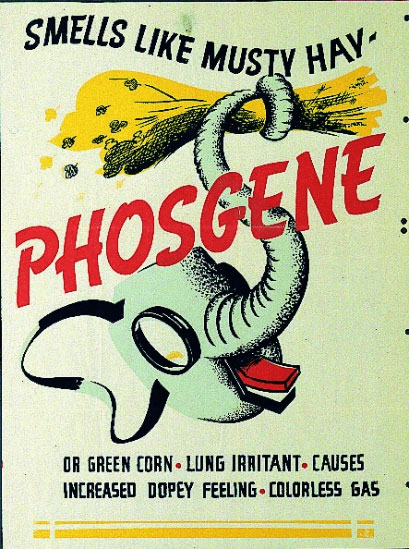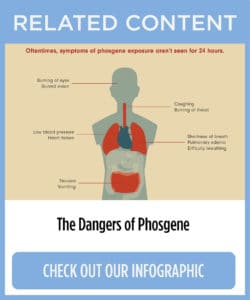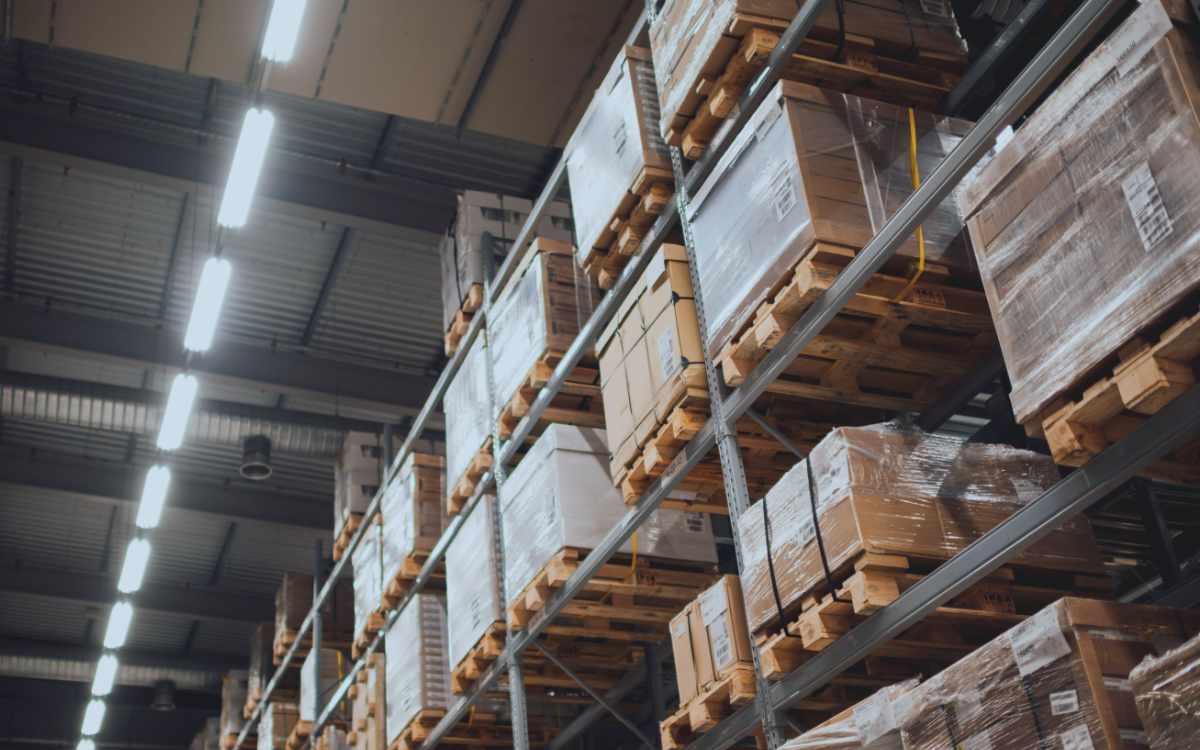Phosgene gas became infamous during its use in chemical warfare in World War I. In numerous welding forums and opinion pieces, people share concerns about phosgene gas produced while welding.
Is this a fact or a myth?

Some industrial processes use phosgene gas. It can also occur as a breakdown product from chemicals called chlorinated hydrocarbon solvents. These have names like trichloroethylene and methylene chloride.
These are very common chemicals. Pesticides, degreasing chemicals, and solvents are all examples. Older refrigerators also still contain coolants that can convert to phosgene when heated. According to the available information, welding a metal that has a solvent or degreaser (like brake cleaner) on it produces phosgene gas as a component of the welding fumes.
In one example, while repairing a refrigerator a man heating the coolant with a welding torch suffered exposure to phosgene. He endured extreme shortness of breath and irritation to his throat and lungs. He was admitted to intensive care and recovered. There are many other stories of people reporting that they or someone they know suffered exposure or injury by phosgene welding fumes.
So what are the facts about phosgene gas?
 Some brake cleaners, degreasers, and solvents do contain chlorinated hydrocarbons. These products carry a warning label about toxic gases and fumes, and some of them specifically mention phosgene gas. Even though they are unexciting reading, always follow warning labels. So it’s absolutely possible to poison yourself with phosgene if using these chemicals incorrectly.
Some brake cleaners, degreasers, and solvents do contain chlorinated hydrocarbons. These products carry a warning label about toxic gases and fumes, and some of them specifically mention phosgene gas. Even though they are unexciting reading, always follow warning labels. So it’s absolutely possible to poison yourself with phosgene if using these chemicals incorrectly.
Is it a real danger for welders?
There doesn’t seem to be much solid information about that. The example of the man who was injured while using a welding torch to work on an old refrigerator is true (Journal of Accident and Emergency Medicine, 12 pp212-213 (1995)). Many people report that they or someone else suffered exposure to phosgene gas while welding something that had been cleaned with brake cleaner. There doesn’t seem to be a lot of reliable information about this problem, though. It’s definitely something that could happen, but there’s not much information about how often it actually does happen.
Do you know someone to whom this has happened, or has it happened to you? Have you ever experienced dangerous fumes while welding? Do you have any information about welding, phosgene gas, and brake cleaner that people should know about?
Check out our infographic on phosgene gas!
References:


